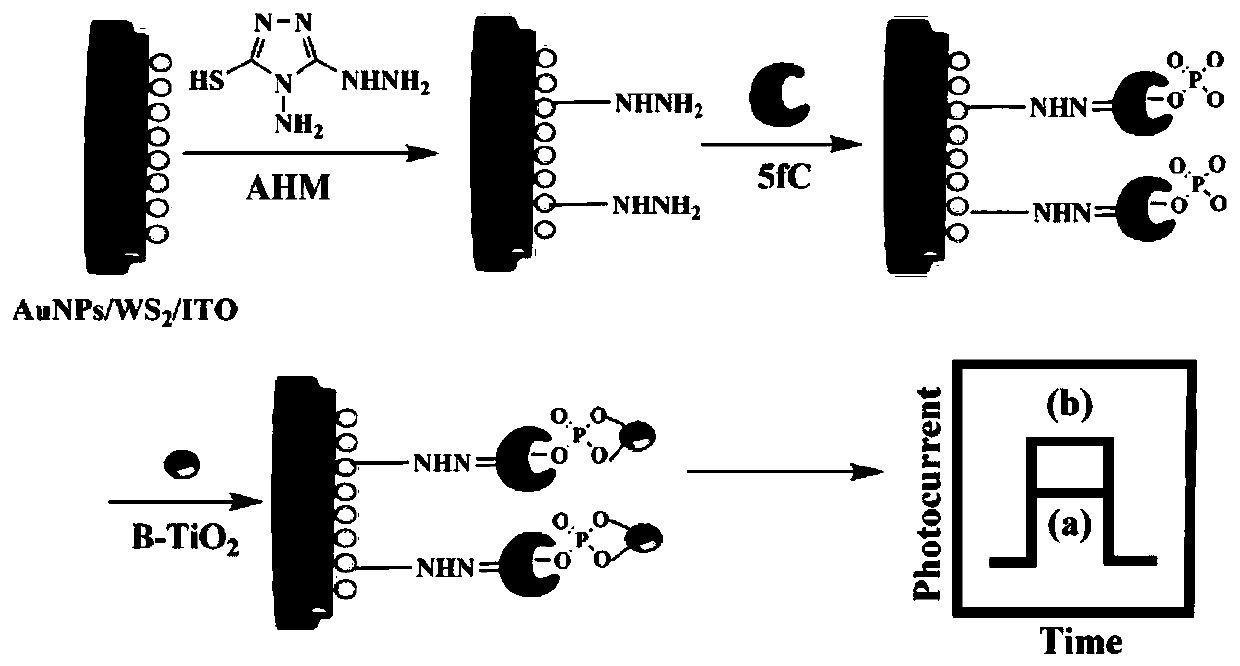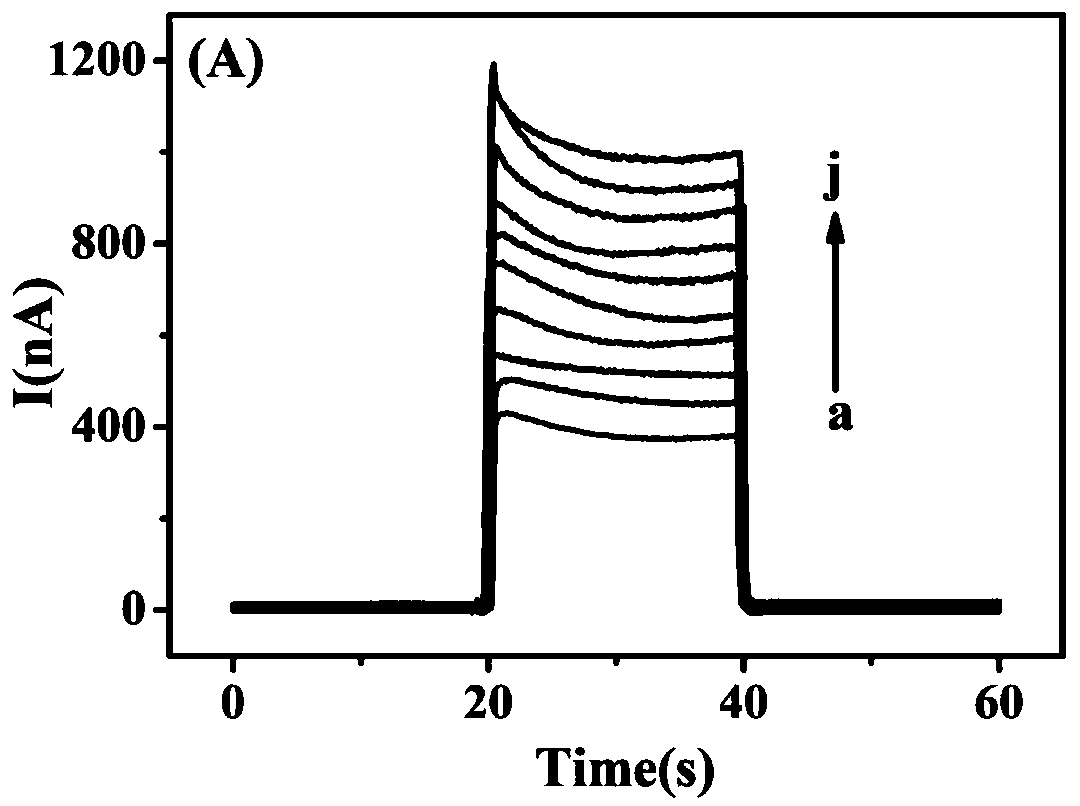Tungsten sulfide-black titanium dioxide heterojunction-based method for detecting 5fC via photoelectrochemical analysis
A technology of black titanium dioxide and photoelectrochemistry, which is applied in the direction of electrochemical variables of materials, material analysis by electromagnetic means, and analysis of materials, can solve the problems of complex operation, expensive instruments, and high cost, and achieve simple detection methods, low cost, and improved The effect of detection sensitivity
- Summary
- Abstract
- Description
- Claims
- Application Information
AI Technical Summary
Problems solved by technology
Method used
Image
Examples
preparation example Construction
[0054] (2) Preparation of thin-layer tungsten sulfide nanosheets: Take 50-300mg bulk tungsten sulfide and 20-100mg polyacrylic acid and add them to 50-100mL water, ultrasonically oscillate for 2-10h, and centrifuge the dark green dispersion at 3000-5000rpm for 10 -20 minutes, collect the supernatant, continue to centrifuge the supernatant at 9000-12000rpm for 10-40 minutes, collect the solid, wash several times with deionized water, and vacuum freeze-dry.
[0055] (3) Preparation of AuNPs: Put 50-100 ml of double-distilled water into a double-necked flask, add 50-100 mM HAuCl 4 Solution 2-10mL, when the solution starts to reflux, remove the stopper. Quickly add 2-10 mL of 35-40 mM sodium citrate and replace the stopper, allowing the system to reflux for an additional 20-40 minutes. The heat was turned off and the system was allowed to cool to room temperature (20-25° C.) with stirring. Store the prepared gold nanoparticles in a refrigerator at 4°C for future use.
[0056] (...
Embodiment 1
[0074] Example 1: Thin layer WS 2 Preparation of nanosheets
[0075] Add 100mg block tungsten sulfide and 50mg polyacrylic acid into 80mL water, ultrasonically shake for 4 hours, centrifuge the dark green dispersion at 4000rpm for 20 minutes, collect the supernatant, continue to centrifuge the supernatant at 9000rpm, collect the solid, and use deionized Washed several times with water and freeze-dried in vacuum.
Embodiment 2
[0076] Example 2: Preparation of AuNPs
[0077] Put 80 ml of double-distilled water into a double-necked flask, add 60 mM HAuCl 4Solution 5mL, when the solution began to reflux, remove the stopper. Quickly add 5 mL of 38.8 mM sodium citrate, replace the stopper, and allow the system to reflux for an additional 20 minutes. The heat was turned off and the system was allowed to cool to room temperature (20-25° C.) with stirring. Store the prepared gold nanoparticles in a refrigerator at 4°C for future use.
PUM
 Login to View More
Login to View More Abstract
Description
Claims
Application Information
 Login to View More
Login to View More - Generate Ideas
- Intellectual Property
- Life Sciences
- Materials
- Tech Scout
- Unparalleled Data Quality
- Higher Quality Content
- 60% Fewer Hallucinations
Browse by: Latest US Patents, China's latest patents, Technical Efficacy Thesaurus, Application Domain, Technology Topic, Popular Technical Reports.
© 2025 PatSnap. All rights reserved.Legal|Privacy policy|Modern Slavery Act Transparency Statement|Sitemap|About US| Contact US: help@patsnap.com



